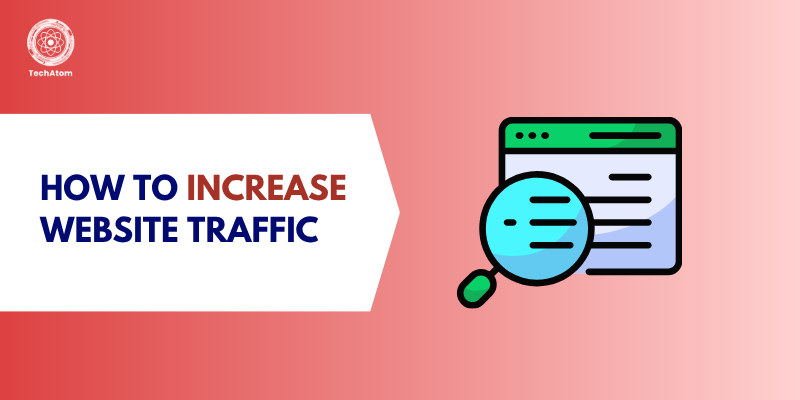The SEO field will remain relevant through 2026, thanks to the digital transformation of businesses and the increased focus on online visibility. Brands are allocating greater resources to organic search, creating more qualified SEO openings in any industry including e-commerce, SaaS, media, and healthcare.
In an increasingly congested digital landscape, selecting the right job board is incredibly important for SEO job seekers and hiring managers alike. Not all job boards are created equal; some will be more tailored toward a digital marketing or SEO role, while others will also include a wider range of tech positions.
Why Does the Job Board Matter?
Relevant Opportunities: Niche or specialized boards (i.e. SEO job boards or digital marketing job boards) often provide more curated relationship-based listings that are relevant to your skills and career goals.
Quality of Listings: The best job boards will screen employers and job postings, giving you the best chance of encountering viable roles with clear expectations and competitive benefits.
Networking & Industry-Wide Community: Most industry-based boards provide extra value in the form of community forums, company reviews, and resources that can help you remain cutting edge in your field.
Time-Saving Job Search: Search filters, keyword search, and job alerts can enable you to zero in on the roles that matter, and help ensure that you don’t miss the best job or company when scanning job boards.
For organizations, posting on relevant sites will draw in capable candidates who are active members of the SEO community. For job seekers, smart selection of job boards can dramatically increase your chance of getting the best job in a fast-moving market.
What is a Keyword Research Tool?
A keyword research tool is the process of identifying specific words and phrases your target audience is using when searching online with the help of tools. With useful keyword research tools, keyword research can improve your SEO tremendously. These tools can help you locate relevant keywords to help potential customers search to find your products or services from a search engine like Google, which will allow your content to better serve the searcher's intent.
Top 10 Keyword Research Tools (2026)
Google Keyword Planner
The first item on my list is my favorite tool for keyword research. Google Keyword Planner is totally free and it is actually a part of Google Ads. This is primarily a keyword tool used from performance marketers who run ads through Google, but its also a valuable resource for anyone doing SEO.
You have to log into your Google Ads account (if you don't have one, just create one - it's free) and the left side panel is where you will find Tools. I think it's under the Planning section, Keyword Planner.
After you open Keyword Planner you will see options to:
- Discover new keywords
- Get search volume and forecast
- Organize keywords into ad groups
The last option doesn't really matter for us as marketers and SEO, but what is important here is discovering new keywords, and getting search volume and forecast.
Features
- Integrated with Google Ads for keyword discovery and research
- Provides average monthly searches, keyword trends, competition, and suggested bid estimates
- Geographic and language targeting options
Pros
- Free to use with a Google Ads account
- Reliable Google data, reflecting real search intent
- Great for PPC and basic SEO keyword research
Cons
- Limited data for low-volume and long-tail keywords
- Exact search volume often given as a range, not specific numbers
- Lacks advanced competitive analysis tools
2. Ahrefs Keywords Explorer
Features
- Massive keyword database across 100+ countries
- Provides keyword difficulty, click metrics, and parent topic insights
- Advanced filters and SERP overview
Pros
- In-depth data for both organic and paid search strategies
- Updated database and excellent competitor analysis
- “Clicks” metric adds actionable value beyond volume alone
Cons
- Expensive for small businesses or freelancers
- Slightly complex interface for beginners
- Some features require a higher subscription tier
SEMrush Keyword Magic Tool
Features
- Extensive keyword suggestions with intent and SERP features
- Keyword grouping and advanced filtering
- Integration with broader SEMrush toolkit (SEO, PPC, content)
Pros
- Easy to use, user-friendly interface
- Powerful clustering and topic grouping
- Excellent integration with site audits and competitor analysis
Cons
- Best features are behind a paywall
- Can be overwhelming due to the breadth of data
- Occasional data discrepancies for non-English markets
Ubersuggest
Features
- Keyword suggestions, SEO difficulty, content ideas, and backlink data
- Competitor keyword gap analysis
- Domain and site audit capabilities
Pros
- Affordable, with a generous free version
- Simple, intuitive design—beginner friendly
- Combines multiple SEO functions in one tool
Cons
- Data set is smaller than Ahrefs/SEMrush
- Occasional lag and performance issues
- Some keyword metrics can be less accurate
Moz Keyword Explorer
Features
- Prioritization score combines volume, difficulty, and potential
- Keyword suggestions and competitive SERP analysis
- Accurate, trustworthy keyword metrics
Pros
- Clean interface, easy to interpret results
- Helpful prioritization scoring system
- Strong community and educational resources
Cons
- Fewer keyword suggestions than some competitors
- Restricted access on basic/free plans
- Limited integrations outside the Moz ecosystem
AnswerThePublic
Features
- Visualizes search questions and queries in a “search cloud”
- Suggests long-tail and “People Also Ask” style keywords
- Great for brainstorming topics and FAQs
Pros
- Fantastic for uncovering content ideas and trends
- User-friendly, visual approach
- Free limited version available
Cons
- Not a full keyword research solution—supplementary only
- Data updates are not as frequent
- Limited analytic depth compared to paid tools
KeywordTool.io
Features
- Generates keyword suggestions from Google, YouTube, Bing, Amazon, and more
- Provides search volume, trend, and CPC data (with Pro version)
- Language and country targeting
Pros
- Ideal for researching keywords across multiple platforms
- Easy, straightforward interface
- Excellent for expanding topic lists
Cons
- Most data behind a paywall (Pro account required)
- Lacks advanced keyword metrics like difficulty or click rate
- No deeper site audit or backlink functions
LongTailPro
Features
- Focuses on long-tail keyword discovery and rank tracking
- Keyword competitiveness analysis
- Customer-driven project management dashboard
Pros
- Especially good for niche websites and low-competition keyword strategies
- Includes profitability indicators
- Easy keyword management and tracking tools
Cons
- Web interface less modern than others
- Limited database outside US/UK markets
- Not as comprehensive as all-in-one SEO suites
Serpstat
Features
- All-in-one SEO platform: keyword research, site audit, backlink analysis
- SERP and competitor tracking
- Batch keyword analysis and clustering
Pros
- Affordable, scalable pricing
- Wide array of features for both SEO and PPC
- Strong local keyword and SERP coverage
Cons
- Some advanced features need higher-tier plans
- User interface can be unintuitive for new users
- Occasional data lag for certain regions
SpyFu
Features
- In-depth competitor keyword research and tracking
- Historic ad spend and keyword ranking history
- SEO and PPC competitor gap analysis
Pros
- Exceptional for competitive intelligence and PPC research
- Uncovers competitors’ most profitable keywords
- Unlimited search results in all paid plans
Cons
- Lacks some holistic SEO features (e.g., technical audits)
- Interface is somewhat dated
- Keyword data may not be as exhaustive for international markets
Common Mistakes to Avoid in Keyword Research
Certainly! Here are common mistakes to avoid in keyword research, rewritten for clarity and flow:
- Overemphasizing high-volume keywords without exploring valuable long-tail phrases that are easier to rank for and often deliver higher conversion rates.
- Ignoring the search intent behind keywords, which can result in targeting terms that don’t match what users are actually seeking.
- Skipping competitor analysis and missing opportunities to uncover effective keywords your rivals are using in your niche.
- Relying too heavily on broad, generic keywords that are often too competitive and may not attract your ideal audience.
- Overlooking the importance of local keywords when your business or content serves a specific geographic area.
- Using outdated keyword lists and failing to adapt to current trends and shifts in search behavior.
- Selecting keywords solely based on volume, without factoring in keyword difficulty and your website’s authority to realistically compete.
- Allowing your keyword strategy to become stagnant by not refreshing your keywords as market dynamics and user queries change.
- Neglecting negative keywords that can help fine-tune your targeting and avoid irrelevant traffic.
- Forgetting to include keyword variations, synonyms, and related terms that users might type into search engines.
- Failing to assign specific keywords to individual landing pages, which can lead to keyword cannibalization and diluted rankings.
- Making decisions based exclusively on search volume, without considering the potential for actual clicks, conversions, or return on investment.
- Overlooking the importance of monitoring keyword performance using analytics and search rankings to continuously improve your strategy.
Avoiding these mistakes can significantly strengthen your keyword research process and boost both your search visibility and conversion rates.
Features to Look for in a Keyword Research Tool
When selecting the right keyword research tool, it’s important to look past the base feature set to all the things you need the tool to help you address in regard to your SEO and marketing objectives. Different tools have their strengths and weaknesses, whether that’s accuracy in keywords, insights from competitors, or integrations with platforms.
By getting clear on your priorities (and what you want to target, such as targeting niche, scaling your campaigns, etc.), you’ll be able to select the tool that creates the greatest impact. Here are the most important considerations:
1. Budget and Return on Investment
What is your budget for a keyword research tool and how much value does that keyword research tool provide? Free tools like Google Keyword Planner or Keyword Surfer are great for consumer-level keyword research, while premium tools like Semrush and Ahrefs have more advanced features like competitor analysis, and keyword tracking. Based on your objectives, consider if the benefits of a paid tool warrant a return on investment.
2. User-Friendliness and Ease of Learning
If you’re new to keyword research, choose simpler tools to get used to the process and develop insights, such as KWFinder or AnswerThePublic. Experienced marketers will leverage these simple tools initially and then graduate to using more comprehensive tools/frameworks like Moz Keyword Explorer or Serpstat. These tools are complicated as they have advanced capabilities, but may have a longer learning curve.
3. Data Accuracy and Reliability
The importance of data accuracy and reliability cannot be overstated when it comes to conducting keyword research. Tools like Google Search Console give you real-time and reliable data originating directly from Google. If you want to perform reliable keyword research, platforms that have large databases of keywords (and constantly update these too), like Ahrefs, will help you propel more in-depth research.
4. Industry-Specific Resources
Use tools that are designed for your niche - for example Unlike content marketers, Serpstat is useful for PPC campaigns, and AlsoAsked is for content marketers to answer user-initiated questions. Ensure the tool is capable of the demands in your industry.
5. Integration with Other Services
Look for tools that can fit into services you are already using. Semrush can connect with Google Analytics to provide more in-depth reporting, and Google Keyword Planner integrates directly into Google Ads to provide easier management of ad campaigns.
6. Scalability for Growth
If it seems possible that your business or marketing needs will grow, ensure the tool is scalable - Semrush again provides support for businesses of all sizes. Semrush offers a variety of plans to accommodate your growing needs, including more than tracking keywords and providing advanced analytics.
7. Purpose and Features
Make sure the features of the tool meet your purpose. Google Ads is planning campaigns? The perfect outlet for you is Google Keyword Planner! Look to Ahrefs and Semrush to discover competitors. Make sure you understand the assigned features whether its keyword difficulty scoring, search volume, or trend analysis.
Conclusion
These tools are more than useful; they are necessary components in a competitive digital ecosystem as of 2026. If you're an experienced SEO or new to digital marketing, investing in a keyword research tool will make or break your online success.
Think about your business goals, and use those criteria to find a tool that works with your workflow, fits your budget, and is manageable for your team size.
Frequently Asked Questions:
1. Why is keyword research a key component of SEO?
Keyword research is a critical component of SEO because it enables you to discover the terms and phrases that resonate with your audience and are used in online searches. By creating content that is optimized for these keywords, you will improve your search engine rankings and visibility, resulting in qualified visitors and increased chances of ranking higher and more traffic to your site and conversions.
2. Is Google Keyword Planner free?
Yes, Google Keyword Planner is entirely free to use. You will only need a free Google Ads account to access the tool. While the tool is geared toward advertisers, it produces some quite helpful keyword data, including search capital, trends in volume, and competition that are also beneficial to SEO research.
3. Are paid keyword tools worth it?
For established marketers and organizations, paid keyword research options often justify their investment. They often offer a wide range of features like competitive analysis, an extensive array of keyword suggestions, difficulty scores, and real-time data that are lacking in free versions. Additional insights can save you time, improve your strategy, and discover high impact opportunities for organic growth.
4. How frequently should I carry out research on keywords?
It is recommended that you conduct keyword research on a regular interval, at least, every three months, or when you release new content, products, or campaigns. Keeping track of keywords gives you valuable means of ensuring you stay current with trends in your industry, evolving user behavior, and changes in search engines, thus allowing you to follow solid search rankings or improve your keyword rankings.
5. Are keyword research tools capable of recognizing trends?
Many tools include a trend analysis tool that indicates topics that are emerging and can be recognized not only in the industry but also based on seasonal search. Usual tools do not predict the absolute future, but through their analysis of past and current data, they can observe a pattern that may help in content planning and assist in timely improvements for that content.




